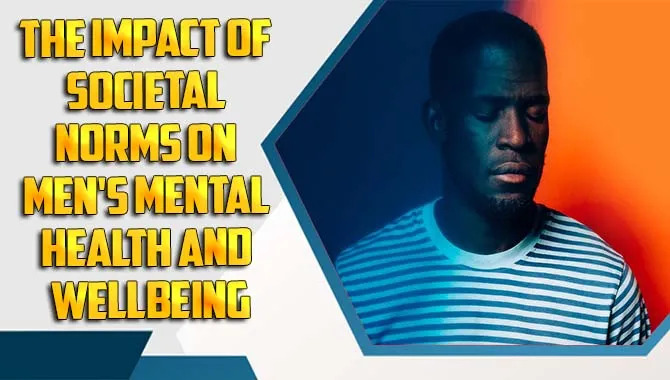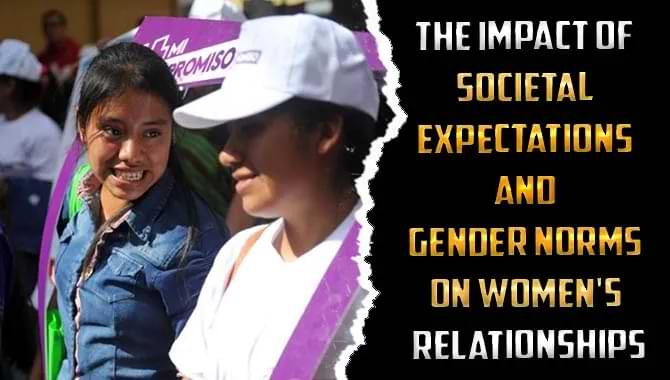Societal expectations and norms have a huge impact on relationships.Societal norms and expectations have a profound impact on relationships.
They can dictate how we interact with our partners, how we communicate, and what we expect from one another. They can also have a negative impact, causing tension and conflict.
When it comes to relationships, there are certain societal norms that are widely accepted. For example, it is generally expected that couples will be monogamous. Cheating is seen as a major breach of trust, and can often lead to the end of a relationship.
Other societal norms include expectations around communication, conflict resolution, and sex. Couples are expected to communicate openly and honestly with one another, and to resolve conflicts in a constructive manner. There are also certain expectations around sexual activity, such as how often couples should have sex, and what kinds of sexual activity are acceptable.
While societal norms and expectations can have a positive impact on relationships, they can also cause tension and conflict. When couples don’t meet the expectations of society, it can lead to feelings of inadequacy or dissatisfaction.
This can be particularly challenging for couples who don’t conform to traditional gender roles. For example, a stay-at-home father may feel like he isn’t meeting society’s expectations of what a man should be, which can put a strain on his relationship.
It’s important to remember that you and your partner are the only ones who can decide what is best for your relationship. If societal norms and expectations are causing tension or conflict

What Are The Different Types Of Societal Expectations And Norms That Can Impact Relationships?
Societal expectations and norms that can impact relationships include expectations around gender roles, family roles, and work roles.
Societal expectations and norms can have a significant impact on relationships. There are different types of expectations and norms, and they can vary depending on culture, religion, and family upbringing.
One type of expectation is the role that each gender is supposed to play. In many cultures, it is expected that the man will be the breadwinner and the woman will be the homemaker. This can put a lot of pressure on relationships, especially if both partners are not on the same page. Another gender-related expectation is that the man is supposed to be the one who initiates and pursues the relationship. This can be frustrating for women who want to be more proactive in their love lives.
Another type of societal expectation is the idea of marriage and family. For many people, getting married and having children is the ultimate goal. This can put a lot of pressure on couples who are not ready for that level of commitment. It can also be difficult for couples who do not want to have children.
Finally, there are expectations around sex. In some cultures, sex is seen as a very private act that should only be shared between a husband and wife. In other cultures, sex is seen as more casual and is not always tied to marriage. These different expectations can impact relationships in a number of ways.
It is important to be aware of the different types of societal expectations and norms that can impact relationships. By understanding these expectations, couples can be more prepared to deal with the challenges that they may face.
How Can Societal Expectations And Norms Influence The Development Of Relationships?
Societal expectations and norms can influence the development of relationships by dictating how people are supposed to behave within those relationships.Societal expectations and norms can influence the development of relationships in a number of ways.
For example, in many cultures it is expected that women will be the ones to take on domestic tasks such as cooking and cleaning, while men are expected to work outside the home and be the breadwinners. This can lead to tension in a relationship if one partner feels that they are not doing their fair share.
Another example is that of arranged marriages. In many cultures it is still common for marriages to be arranged by families, rather than the individuals themselves choosing who to marry. This can put a lot of pressure on a relationship from the outset, as there may be expectations from both families that the marriage will be a success.
Ultimately, societal expectations and norms can have a big impact on the development of relationships. It is important to be aware of these influences so that you can manage them in a way that works for you and your partner.
What Are Some Specific Examples Of How Societal Expectations And Norms Can Impact Relationships?
Societal expectations and norms can impact relationships by dictating what is considered acceptable behavior within the relationship.Societal expectations and norms can have a big impact on relationships.
For example, if you’re from a culture that expects women to be submissive, you may have a difficult time in a relationship with a woman who is assertive and independent. Or if you’re used to dating people who are the same race as you, you may have trouble dating someone of a different race.
These are just a few examples of how societal expectations and norms can impact relationships. If you’re not sure how your own cultural expectations may be affecting your relationships, it can be helpful to talk to a therapist or counselor who can help you explore these issues.
How Can Societal Expectations And Norms Affect The Communication Within Relationships?
Societal expectations and norms can affect the communication within relationships by causing people to communicate in ways that are socially acceptable, rather than in ways that are true to their own thoughts and feelings.
How Can Societal Expectations and Norms Affect the Communication Within Relationships?
In many ways, our society’s expectations and norms can have a profound impact on the communication within our relationships. For example, consider the way that men and women are typically socialized. In general, women are socialized to be more nurturing, emotional, and to value relationships, while men are socialized to be more independent, rational, and to value work and achievement.
These different socialization patterns can lead to communication difficulties within a relationship, especially when one partner feels that their needs are not being met. Another example of how societal expectations and norms can affect communication within a relationship is when one or both partners have different cultural backgrounds.
Different cultures can have different expectations about gender roles, communication styles, and ways of expressing emotions. This can lead to misunderstandings and conflict if couples are not able to effectively communicate and understand each other’s cultural background.
Finally, societal expectations and norms can also affect communication within a relationship if one or both partners have different levels of education. Different educational backgrounds can lead to different ways of communicating and understanding information. This can be a particular challenge if one partner is used to communicating in a more formal, academic way, while the other partner is more used to communicating in a more informal, everyday way.
While societal expectations and norms can certainly affect the communication within our relationships, it’s important to remember that we always have the power to choose how we communicate with our partners. We can choose to open up and share our feelings, even if it’s not the “norm” in our society.
We can choose to listen to and understand our partner, even if we don’t agree with them. And we can choose to respect and value our differences, even if they seem insurmountable at times. The key is to remember that communication is a two-way street, and that we all have a responsibility to make it work.
FAQ
1.What Impact Do Societal Expectations And Norms Have On The Ability To Trust Others In Relationships?
2.How Can Societal Expectations And Norms Contribute To Conflict Within Relationships?
3.What Role Do Societal Expectations And Norms Play In The Satisfaction Experienced Within Relationships?
4.How Can An Understanding Of Societal Expectations And Norms Help To Improve Relationships?
Conclusion
The impact of societal expectations and norms on relationships can be both positive and negative. On the one hand, these expectations and norms can help to provide structure and stability in relationships. On the other hand, they can also place unrealistic and unfair demands on both parties in a relationship, which can lead to conflict and ultimately to the breakdown of the relationship.
Are you now clear about the impact of societal expectations and norms on relationships? If you have any questions, please feel free to comment below.


